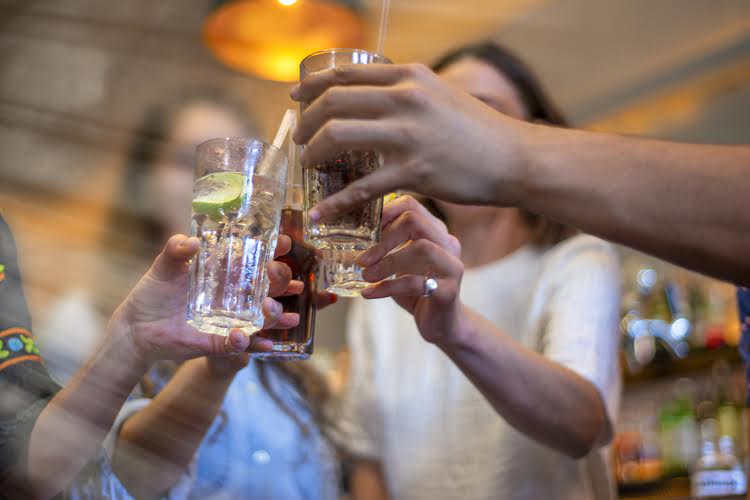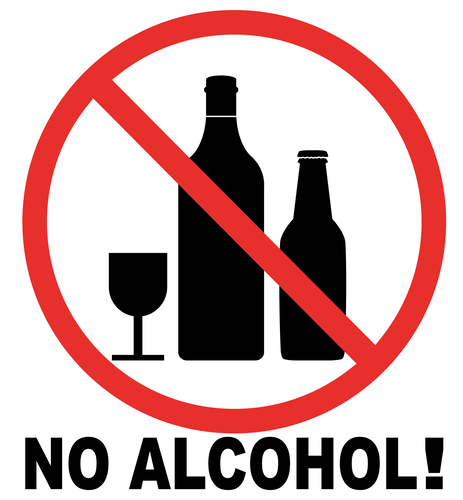The acidity cuts through odor and stimulates saliva, which helps cleanse your mouth. Brush your gums and the roof of your mouth too—anywhere alcohol might have clung to. If you are concerned about your alcohol smell, it may be a good idea to limit close interactions until you feel confident that the odor has dissipated. Although exercising can help you sweat out alcohol toxins, it doesn’t directly eliminate the smell. We take care https://www.humanvision.com.tr/writing-a-goodbye-letter-to-addiction-icarus-get/ of your physical, mental and emotional health to help you achieve long lasting recovery.

Alcohol’s Lingering Effects
Understanding what causes alcohol breath and why it lingers is important in finding effective remedies. Drinking water is not only essential for staying hydrated but also for alleviating alcohol breath. Water helps to flush out the toxins and dilute the alcohol in your system, reducing the intensity of the odor.
- But, temporary fixes like cough drops, drinking coffee, and chewing gum may help.
- Natural remedies can play a significant role in combating alcohol breath.
- Look for products that contain xylitol and salivary stimulants 6, like our oral health products targeted on dry mouth.
The Role of Nutrition and Exercise in Recovery
Foods such as yogurt and mint-flavored products boost saliva production, maintaining oral hygiene. Moreover, high-protein and fatty food items, like peanut butter and cheese, can coat the mouth to reduce odor volatility. To minimize alcohol breath, consider moderating your alcohol intake and pacing yourself when drinking. Regularly alternating alcoholic beverages with non-alcoholic options can significantly reduce the intensity of any residual odor afterward. Staying well-hydrated by drinking water throughout the evening will not only help flush alcohol from your system but also alleviate dryness in drinking again after sobriety your mouth. Chewing sugar-free gum after drinking can help stimulate saliva production and wash away any lingering alcohol in your mouth.
Understanding the Dopamine Detox Timeline: A Step-by-Step Guide
- Excessive sweating will only dehydrate you further, leaving you worse for wear.
- By applying these strategies, you can effectively manage alcohol breath, leading to enhanced confidence and comfort in social situations.
- Using air fresheners or cleaning your mouth with toothpaste will not eliminate the presence of alcohol on your breath.
To minimize the impact of alcohol breath, moderation is key, along with staying well-hydrated. Although remedies like chewing gum or gargling with mouthwash can help temporarily mask the smell, they do not eliminate the underlying odor generated by alcohol metabolism. Therefore, to effectively avoid alcohol breath, abstaining from alcohol consumption is the most reliable approach. In conclusion, alcohol breath can be an embarrassing and unpleasant side effect of drinking.
The Role of Oral Hygiene Kits: Preparedness on the Go
However, it’s important to note that the time it takes for alcohol to leave your breath can vary depending on individual factors such as age, weight, gender, and metabolism. When it comes to alcohol breath, there are a few key factors to consider. The most important thing to remember is that the only way to truly get rid of alcohol breath is to allow time for your body to metabolize the alcohol fully. Contrary to popular belief, smoking or having coffee does not reduce the smell of alcohol on your breath 6. These practices may temporarily mask the odor, but they do not eliminate the presence of alcohol on your breath. When it comes to alcohol consumption, the distinctive smell of alcohol breath is a common and often unpleasant side effect.

When it comes to alcohol consumption, responsible drinking is key to avoiding the lingering effects of alcohol breath. By practicing moderation and exploring alternative options, you can enjoy socializing without the worry of persistent alcohol breath. In addition to water, certain beverages can also help freshen your breath. Green tea and herbal tea, for example, contain polyphenols that can help neutralize odors. Drinking these teas alongside water can provide an extra boost in combating alcohol breath.

What Does Alcohol Smell Like From Pores? The Answer
Activated charcoal is a highly porous substance that binds to toxins and chemicals in the body, including those that cause bad breath. It’s precisely these other toxins that come along with alcohol consumption that supplementation does a great job of reducing. For example, one metabolic toxin called acetaldehyde has been shown to be the prime cause of breathing difficulty in 30-40% of East Asian alcohol drinkers. It has also been linked to increased cancer risks when high levels of it accumulate in your body.
Understanding the causes and duration of alcohol breath can help individuals manage and alleviate this common concern. By allowing time for the body to metabolize alcohol, practicing good oral hygiene, and staying hydrated, individuals can freshen up and minimize the noticeable effects of alcohol breath. It’s crucial to prioritize responsible drinking habits and avoid relying on unproven remedies for alcohol breath. While temporary fixes may help mask the odor, they do not accelerate the process of sobering up or eliminate the presence of alcohol in the body. The only surefire way to avoid alcohol breath is to refrain from drinking alcohol altogether. Maintaining good oral hygiene is crucial for freshening breath after consuming alcohol.
Certain types of food, such as greasy, high-protein, and fatty foods, have been found to be particularly effective in slowing alcohol absorption. Foods like meatballs, chicken wings, and pizza can help reduce the rate at which alcohol is absorbed into the bloodstream, potentially minimizing the Oxford House effects of alcohol breath. It’s Saturday night, and you’re going to a pub to chug a few beers with your buddies. To prevent your blood alcohol level from reaching its peak, always have some grub in your belly. This will automatically lower your BAC level and help you smoothly pass a breathalyzer test.
While they can mask the odor temporarily, they do not address the source of the smell. Staying hydrated by drinking water is a more effective long-term strategy, as it combats dry mouth and flushes toxins, contributing to fresher breath. Staying hydrated is crucial for overall health, especially when it comes to mitigating the effects of alcohol consumption.
